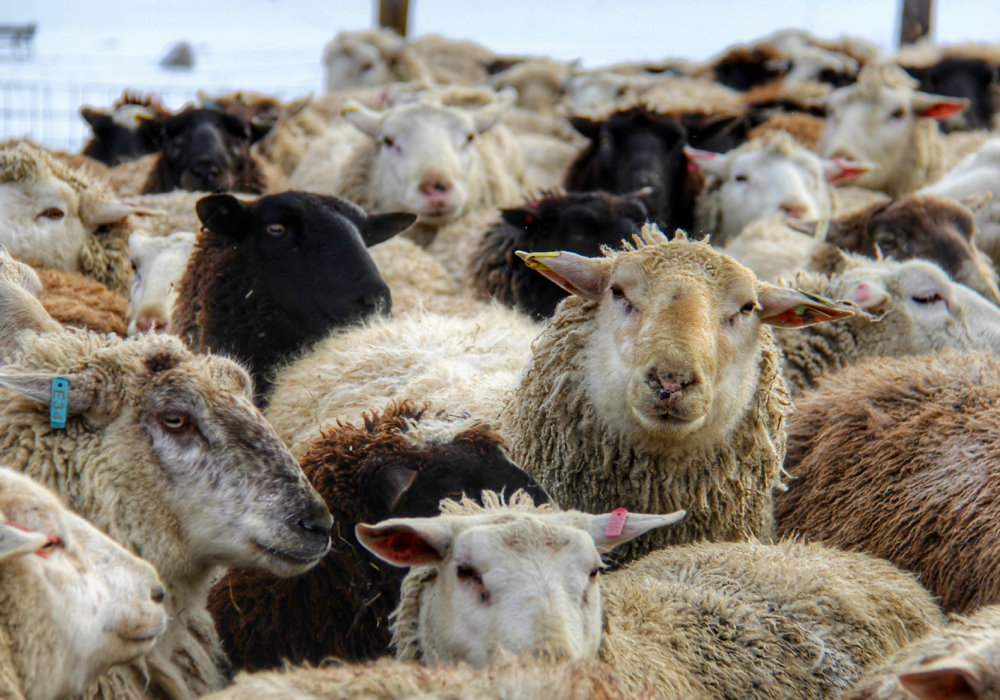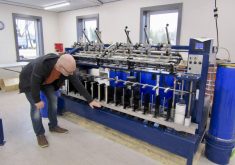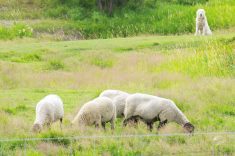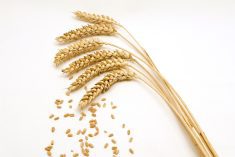Aweak pound has revived Britain’s ailing livestock sector, boosting prices and helping restore profitability despite the global economic downturn, industry sources said April 8.
“Exchange rates are having a tremendous impact on our markets at the moment. From around October the vast majority of producers have been above the line (making positive margins),” said Mick Sloyan, chief executive of the British Pig Executive.
“I hope the industry can use this window of opportunity, this level of productivity and profit, to invest,” he told a conference organized by BPEX and its sister trade body the English Beef and Lamb Executive (EBLEX).
Read Also

Smart deworming for sheep starts with individual fecal egg counts
Fecal egg count tests are one step to managing dewormer resistance and managing sheep parasites on Canadian sheep farms to maintain flock health.
Britain’s pig-breeding herd has fallen sharply over the last few years. It stood at 427,000 at the end of last year, compared with about 800,000 a decade earlier.
Outbreaks of classical swine fever and foot-and-mouth disease in Britain contributed to the decline and industry sources have also argued higher welfare standards than key competitors have also hurt U. K. producers.
“It is a good outlook, certainly from a producer’s point of view. We have a strong market and that could lead to growth of supply…(but) it is just a window, it is not the salvation as the exchange rate could change at any moment,” Sloyan said.
Stuart Ashworth, head of economic services for Quality Meat Scotland (QMS), said exchange rate moves had made Scottish lamb 30 per cent cheaper in Europe since January 2007.
He noted another key competitor, New Zealand, in the same time period, had become 23 per cent cheaper in Europe but 11 per cent more expensive in Britain.
“British lamb is more competitive than New Zealand lamb in Europe at the moment,” he said.
FEWER EWES
Ashworth said the number of ewes in the U. K. was expected to be 5.5 per cent lower this year at 14.01 million and domestic sheepmeat production was seen falling to 308,000 tonnes from 328,000 tonnes in 2008.
U. K. beef production is also declining with production seen falling to 805,000 tonnes in 2010, down from a forecast 835,000 in 2009 and 861,000 last year, analyst Mark Topliff of the Agriculture and Horticulture Development Board said.
He noted retail beef prices rose in 2008 and remained strong early this year while the weak pound gave a boost to U. K. exports which were up 32.4 per cent last year.
U. K. beef producers have also benefited from a trend towards eating at home more often sparked by the recession, industry sources said.
“It would be true to say import penetration is higher in catering than in retail,” EBLEX chief executive Richard Lowe told Reuters.
Analyst Richard Brown of GIRA Consulting said production of most meats had also declined globally, helping to offset a reduction in demand linked to the global downturn.
“It is clear that less meat will be produced this year and it is extremely lucky that this happens to coincide with demand being so much weaker,” he said.


















